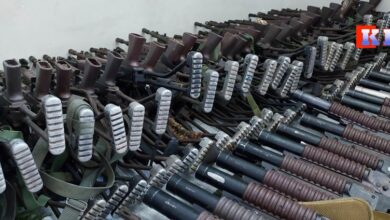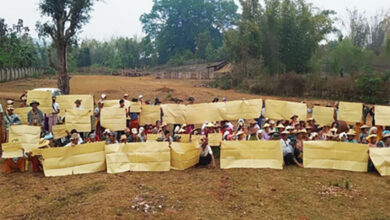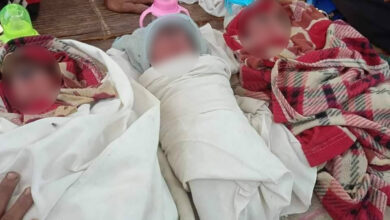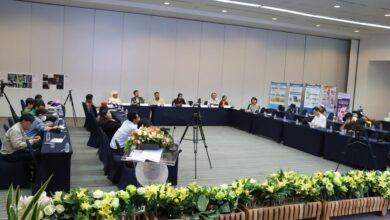Karen Communities Work For Kids To Have A Decent Education
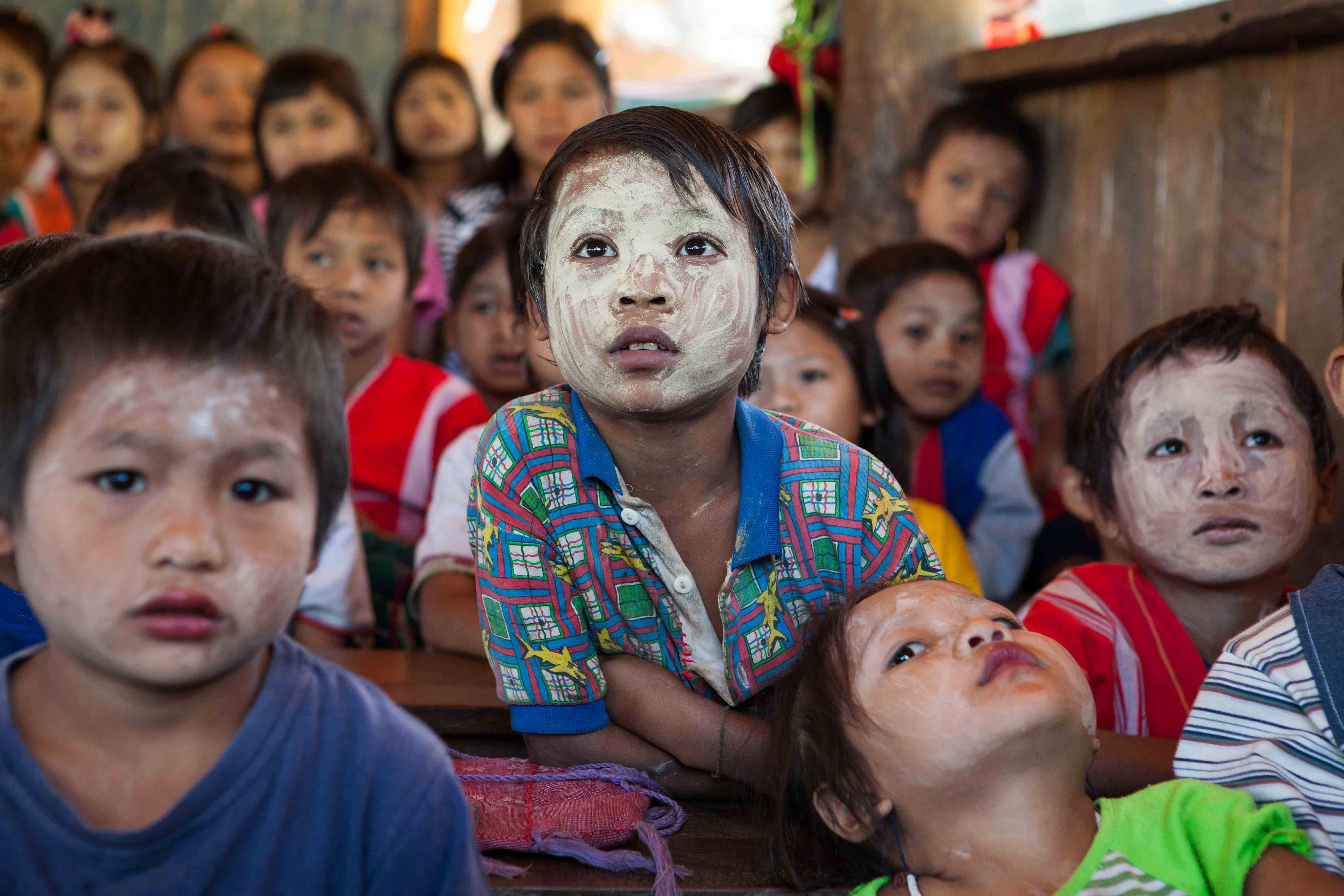
The sound of children singing resounds from Klay Poe Klo School in Karen State, Burma. Naw Htoo La Paw smiles as the song finishes, her youngest child held in one arm. Kids bustle out of the classroom – a single, open room with wooden benches – heading for lunch.
Htoo La Paw is one of four teachers at Klay Poe Klo School. There are 70 students, two blackboards, and too few learning materials to go around. She takes great pleasure and pride in her work. Two of her three children attend the school. The third, a newborn baby a little over a year old, is with her constantly.
“We don’t have enough books. We only have 20 text books for our 70 students.” She says, adding, “we have problems sometimes the curriculum changes so the textbooks are often out of date.”
The teachers get any additional textbooks from Mae La Refugee Camp in Thailand, a five-hour journey away by foot, riverboat and car. After Grade 5 if students want to attend High School, they must go to Mae La Refugee Camp for further education.
The Karen Education Department (KED) funds the teachers with a 3,600 baht a year salary ($US 110). They also supply materials like stationary, but these are in limited supply and there is not enough to go around. UNICEF’s latest education statistics on Burma noted that while a high portion of children get primary education, around 90%, only around 50% of children get to high school.
“Teaching doesn’t give us enough money to live, so we work other jobs, like farming.” Htoo La Paw says.
The teachers work Monday to Friday, from 8:30 in the morning until 3pm with one break. Her husband works on the farm at home while she is at school.
“In the early morning I cook for my children before school. Then, I come here to teach the kids.” It is a lot of work for a mother of three, she adds.
The school lacks any sporting facilities, basic resources and only has two blackboards for four classes of kids, but what they lack in resources the teachers try to make up by being passionate about their work.
Htoo La Paw has been a teacher for nine years.
“I want to give my knowledge to future generations of Karen. I am proud of my work and some of the students are now in post-ten.”
Hope endures low wages, war, displacement and poverty
Access to education in Karen State has been compromised by lack of accessible schools, poverty, war, displacement, and low wages for teachers – conditions made worse by a decades-long lack of government funding. In Burma, education and health care expenditure represent about 2.3 % of GDP, according to UNICEF.
Two comprehensive 2013 reports by UNICEF noted that while Burma’s budget had increased by 81% in the last two years, health and education spending remained “strikingly low” by international standards and had failed to meaningfully pick up in spite of the overall budget increase. In 2012-2013, about 29% of Burma’s budget went to the defense forces, according to a budget overview in one a UNICEF report.
The KED claim that more than one million children in Karen State have no access to a formal education, so it is left to villagers to organise it. The teachers are often locals who have had High School education in Mae La Refugee Camp and have returned to share their knowledge with the community.
Htoo La Paw’s colleague, Saw Tatoh, 25, recently came back from Mae La camp where he received his High School education – it is his first year teaching at the school.
“Most of our people are educated, but only to primary level. I want my people to have a chance at a better future through higher education.” Saw Tatoh says.
Saw Tatoh feels that the meager salary that the teachers are paid is one of the major barriers to better education opportunities for hundreds of thousands of Karen children. “The teachers salary is very small so people who have proper teaching qualifications don’t want to work here. I am not qualified as a teacher, but I try my best. I went to High School at Mae La and then came back to teach.”
Saw Tatoh lives on a basic diet of rice, and said he cannot afford meat, so he relies on the goodwill of the villagers for food.
“There isn’t enough food because of the lack of money for teachers. We have enough rice – but everything else, like fish, chicken we do not get much of.”
Despite the poor conditions and salary Saw Tatoh is driven by a sense of duty to his community.
“I decided to be a teacher after I saw my people facing difficulties and many kids not getting proper opportunities. And Karen teachers are needed.”
Saw Tatoh said he hoped that things would improve in the coming years as Burma opens up to the world.
“The villagers now help us with food, because the KED only pays us in one lump sum at the end of the year – so we don’t have any money for the whole year. But I am happy to teach here. But we need more support, especially food, stationary and a livable salary.”
Parents Look to Brighter Future
Naw Ke is a mother of seven. Four of her children currently attend Klay Poe Klo School.
Twice fleeing Burma Army attacks in the last 14 years, Naw Ke has worked as a daily laborer in Thailand to support her family and keep her children in school.
“Its very difficult to raise children here. We have no steady income, and sometimes have to go to Thailand as a daily worker on a corn or a bean farm.”
Naw Ke said a full day’s work earns her about 100baht ($USD3).
Naw Ke said she has to get up at sunrise because it takes two hours to get to work. First walking for an hour to the nearest river crossing, then by boat to Thailand. “We work to get basic things like soap. You can’t get these things here, so we have to get them in Thailand.”
Naw Ke believes that by giving her children an education, they will get a better chance in life.
“We want a decent life, like in Thailand, stability and peace. I send my children to school to speak English and to be better educated and have better opportunities than myself. I want them to get a good job, not hard labour.”

